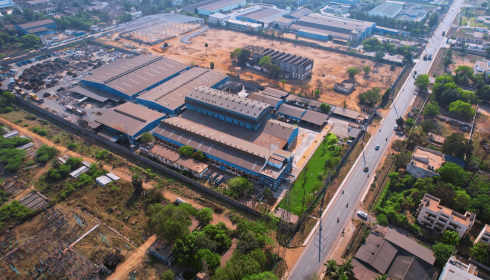Did you know that the metal scrap lying around could be powering not just the circular economy, but livelihoods too? As India charts its path towards a greener and more sustainable future, scrap recycling companies in India are emerging as game-changers.
Beyond managing waste, they are generating employment, uplifting communities and turning informal scrap trading into a thriving, structured industry. From local waste collectors to small entrepreneurs, the ripple effect of organized metal recycling is creating real economic impact across the country.
Formalising the Informal Sector
The traditional scrap business in India has long relied on informal workers: rag pickers, small collectors, and middlemen – with little to no access to safety, job security, or fair wages. However, the rise of organized metal recycling companies in India is changing that narrative. These companies are formalizing the sector by offering proper employment contracts, training programs, and safety measures to workers across the value chain, from waste collection and segregation to processing and quality control.
By integrating these informal workers into the formal economy, scrap recycling companies are enabling access to stable incomes, better working conditions, and social benefits. This transition not only improves livelihoods but also helps in streamlining material recovery and enhancing the overall efficiency of the metal recycling process.
Job Creation Across the Value Chain
From manual sorting and dismantling to operating heavy machinery and handling logistics, the scrap recycling company workforce spans a wide spectrum of skills and roles. The recycling business in India provides both direct and indirect employment across multiple levels. For example, in the lead and copper recycling segments, jobs are created in areas such as collection, sorting, transportation, smelting, and administration. Moreover, the launch of every new recycling plant in India stimulates employment opportunities within surrounding regions.
Companies like Jain Metal Group contribute to sustainable employment by creating opportunities across the recycling value chain, supporting local economies and enabling community development through their large-scale operations.
Encouraging Entrepreneurship
Beyond employment, the organized scrap recycling industry also nurtures micro-entrepreneurship. With Extended Producer Responsibility (EPR) frameworks being implemented in India, new business models are emerging to support waste collection, reverse logistics, and materials aggregation. These models provide opportunities for small businesses and self-help groups to participate actively in the recycling value chain.
In fact, local entrepreneurs are now setting up neighbourhood-level scrap collection centres, partnering with larger recycling companies in India to ensure compliance and quality. This approach boosts local incomes while enhancing the reach and impact of formal recycling systems.
As the world shifts towards circularity, scrap recycling companies in India are leading a silent revolution – one that merges environmental responsibility with economic empowerment. By formalising the sector, generating employment, and encouraging entrepreneurship in waste collection and segregation, these companies are not just managing waste, they are reshaping futures.
